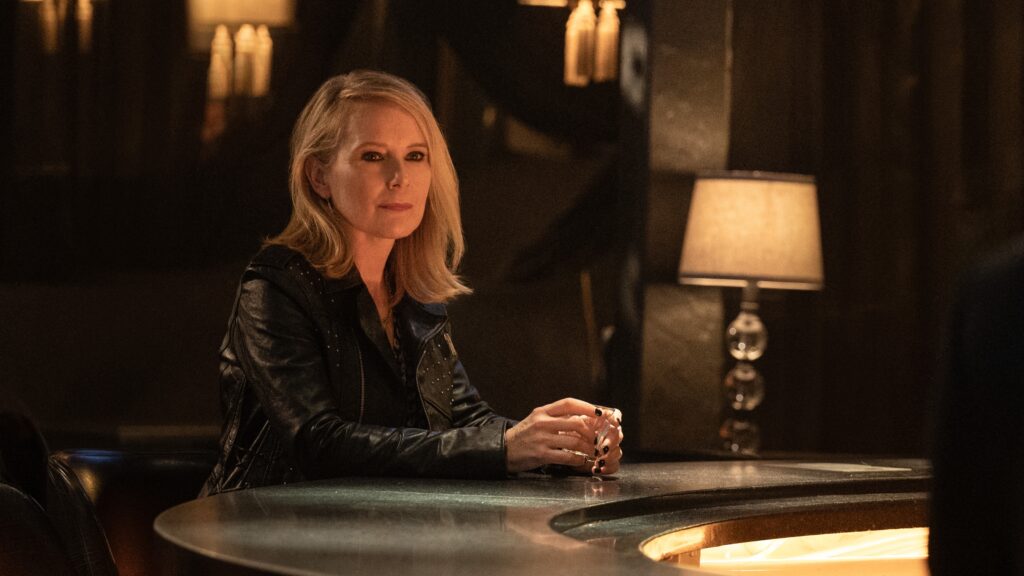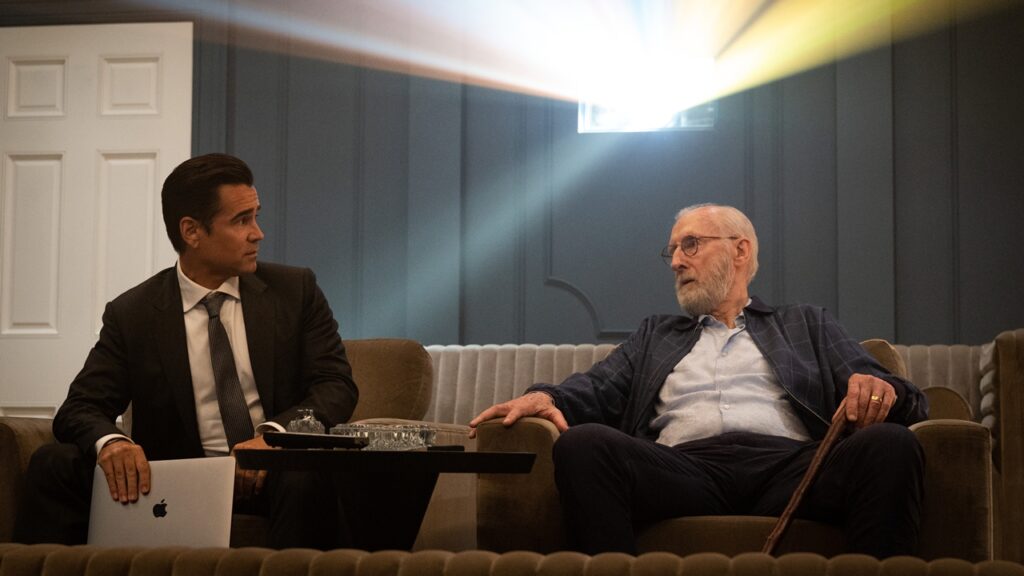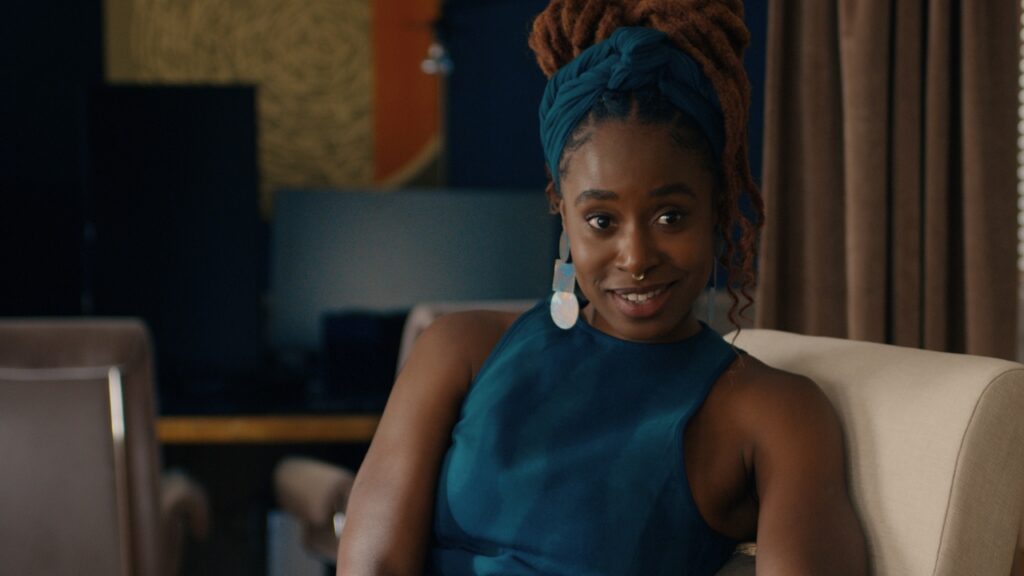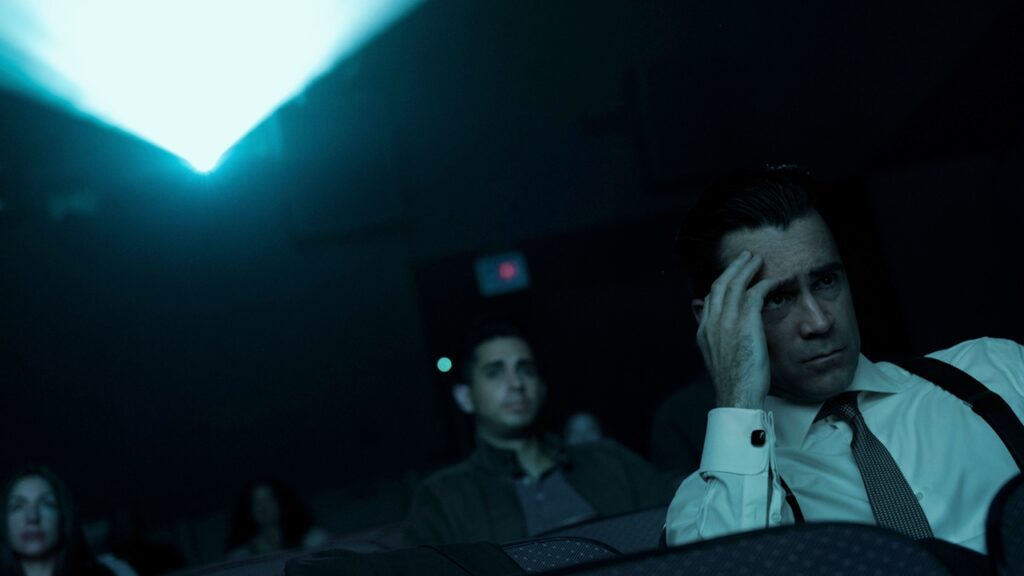Read also:
How to Watch FX Live Without CableHow To Watch AMC Without CableHow to Watch ABC Without CableHow to Watch Paramount Network Without CableSome shows are difficult to write about because they don’t excite one’s passions. They’re not terrible or great, so they offer little to dig into. Sugar is not that sort of show. Instead, its difficulty stems from a plot development that seems too large to go unremarked upon. And yet, it would be unfair to those who haven’t yet watched the show to spoil it.
With all that in mind, I will delicately attempt to navigate a third path. This development is significant. It changes much of what you know about several of the characters. And yet, it largely doesn’t impact the show. I don’t mean it is a waste of time, only that the show’s positives and negatives remain largely unaffected by this development. Take it out, and the story’s heart will remain essentially the same. It’s the rare significant plot point that changes so much without fundamentally altering the series. So, while it would be interesting to write about and explore it, this review is still broadly comprehensive without touching it.

John Sugar (Colin Farrell) is a private investigator specializing in finding missing people. Draped in bespoke suits, he insists he hates hurting people but does so with fluidity and ease. After completing a case in Japan, a message from legendary film producer Jonathan Siegel (James Cromwell) draws him back to LA. Jonathan’s granddaughter Olivia (Sydney Chandler) is missing. Despite a history of substance abuse and frequent absences—as well as the lack of concern from her father Bernie (Dennis Boutsikaris), a producer of…less quality movies—Jonathan is convinced this time is different. A film obsessive, Sugar can’t resist taking the meeting despite reassuring his handler Ruby (Kirby) that he’d rest and recuperate. When Olivia reminds the PI of his missing sister, he must take the case, promise or not.
The most striking aspect of Sugar is, unsurprisingly, Farrell’s warm yet detached turn as the detective. Despite being an obviously seasoned pro and those not saddled with naivete, he has an almost reflexive empathy. His inner monologue betrays the occasional cynicism, but time and again, he ignores that side of himself to extend a helping hand or refuse to take advantage of someone. He’s been on an over decade-long streak of proving he’s the rare breakout star worth everyone’s attention. His performance here keeps that going. It’s a classic archetype—the gentle soul with a talent for violence—but he finds the small details in Sugar that make the character feel far more than a cliché.

The other “star” is the series’ aesthetics. Creator Mark Protosevich executes his vision well with seamless assistance from fellow writers Donald Joh, David Rosen, and Sam Catlin and directors Adam Arkin and Fernando Meirelles. The PI’s opening adventure in Japan mixes black and white, archival film, and present-day video images to set the scene. The result is disorienting. It is only when Sugar brandishes his modern smartphone that the audience finally realizes they’re grounded in the present day. While the rest of the series never manages to—or even really attempts to—create the same sense of time displacement, it is an undeniably striking foot to start off on.
Sugar continues to use those techniques, though, to let viewers into John’s head. What wasn’t initially clear reveals itself soon after he lands in LA. The black and white and film footage isn’t random. They’re John’s memories of his favorite movies superimposed over reality. When he drives down a main thoroughfare in the city, he—and the audience—is “seeing” a kind of greatest hits of films that once took cinemagoers down that same stretch of road. When the PI needs to get smart with a possible witness, he’s also remembering when Bogie did the same.

For film fans, the effect is undeniable. It’s a dopamine dump triggered by too many hours spent in darkened auditoriums or sitting too close to the TV during the afternoon movie. It would just be an exercise in “Hey, remember this?” if it wasn’t clear that the films have baked themselves into Sugar’s worldview. He’s not just a nostalgic. Film is how he understands life, morality, and more.
As such, the other characters in the series tend to fit into clear categories initially. Olivia’s stepmom Melanie (a stellar Amy Ryan) is the soulful addict. Henry (Jason Butler Harner) is the stalwart friend. David Siegel (Nate Corddry) is the has-been/failson. As the narrative progresses, they refuse to stay so easily boxed in, though. Frequently, they prove worthy of the empathy John extends to them. For those that don’t, they often reveal themselves to be far worse than first suggested.

Sugar is a noir series obsessed with its predecessors that refuses to be trapped by their archetypes and cliches. Even the fact that it is a television series instead of a film becomes a subversion of the form and, thus, a questioning of John’s worldview. That’s why the plot development alluded to in this review’s opening is both big AND inconsequential. By the time it happens, Sugar has already been deconstructing itself for hours.
Sugar will beat your teeth out and kick you for mumbling on AppleTV+ starting April 5.